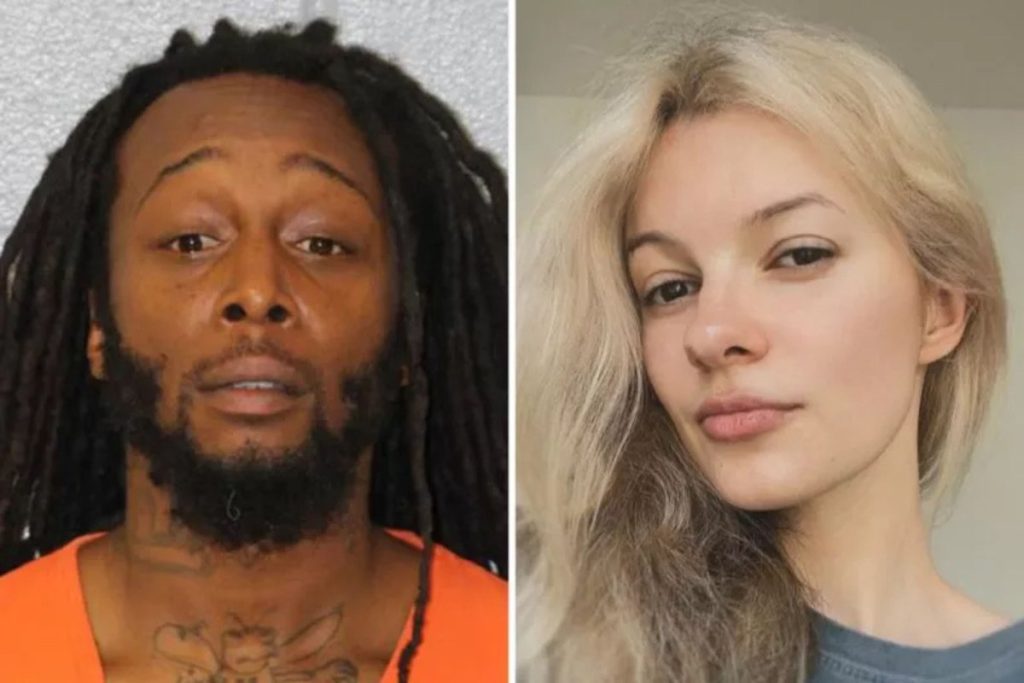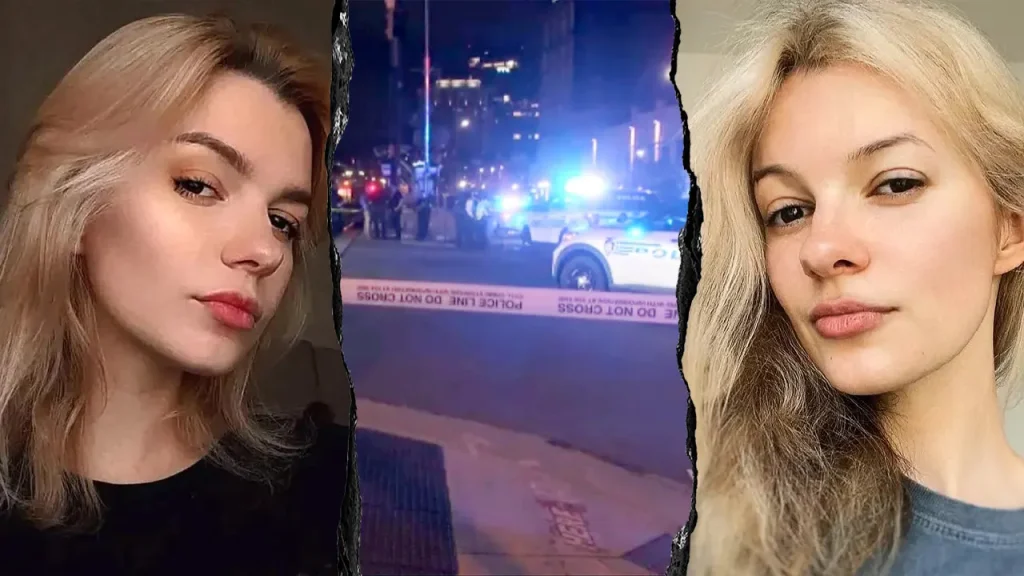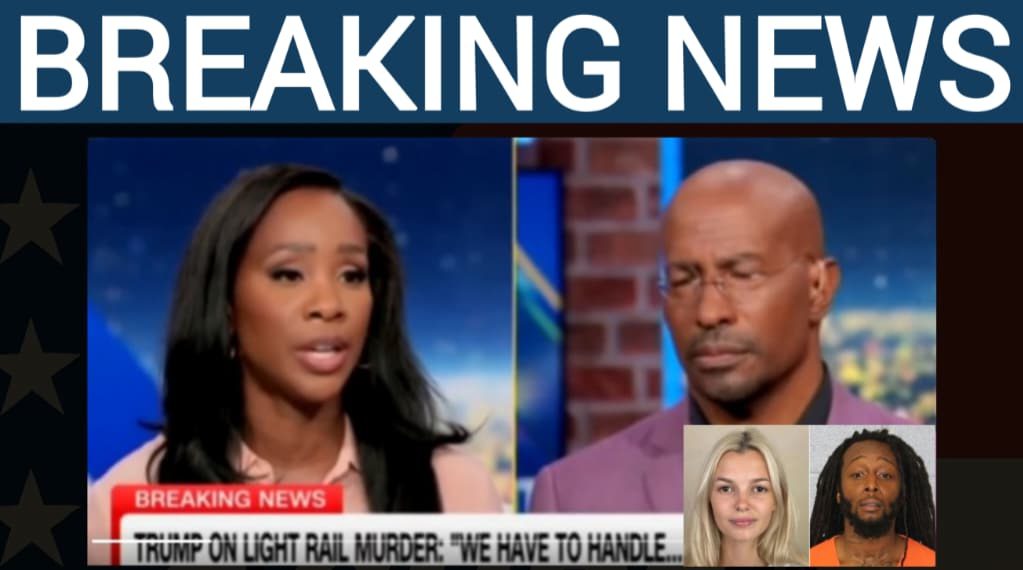Van Jones and CNN Panel React to Iryna Zarutska’s Killing, Reject Racial Narrative and Call Out Political Spin
The story of Iryna Zarutska’s tragic death is still sending shockwaves across the country. A young Ukrainian refugee who came to America to build a safer life, she was brutally stabbed on a Charlotte light rail train in August 2025. The horrific act was caught on video, leaving people shaken not just by the violence itself, but also by the questions it raised—questions about safety, about race, about politics, and about how we as a society respond to trauma. This week, a panel on CNN, led by Van Jones, weighed in on the tragedy, and their comments have stirred a whole new layer of conversation.

To understand why this panel has caused so much debate, you have to start with what happened to Zarutska. She had escaped war in Ukraine, resettling in North Carolina where she was building a new life. On what should have been a normal day, she boarded a train and never made it home. Witnesses describe the attack as sudden and terrifying, and it was every passenger’s worst nightmare—an innocent person’s life stolen in a moment of senseless violence.

The suspect, a man with a history of instability, was quickly arrested. What followed was not just grief but anger. On social media, voices across the political spectrum immediately clashed over why this happened. Some conservative commentators, including Charlie Kirk, claimed the attack was racially motivated, pointing to unverified audio clips where the suspect allegedly said he had “got” a white girl. These claims caught fire online, especially as people compared the case to other moments where race has shaped national conversation.
But on CNN, Van Jones took a very different stance. His words, spoken during a panel discussion, pushed back against the idea that race was proven to be the motive. He began by acknowledging the pain and horror of the attack. He said what happened to Zarutska was “horrible” and “everybody’s nightmare” if you have loved ones out in public spaces. He made it clear that the crime shook him, as it has so many others. But then he pointed out something crucial: “We don’t know why that man did what he did.”
That line set the tone for the rest of his comments. Jones directly criticized Charlie Kirk for claiming the suspect attacked Zarutska because she was white. “When there is no evidence of that, it’s just pure race mongering,” Jones said. He called such rhetoric not only wrong but also harmful, because it takes a deeply painful event and turns it into a weapon in the ongoing cultural battles that divide the country.

Jones then put the discussion in a larger context. He compared the current claims to what happened after George Floyd’s killing in 2020. He reminded viewers that even though the world watched a white police officer murder a Black man on video, there were still no sweeping changes at the federal level. “Not one law was passed,” Jones said, arguing that the idea of automatic sweeping societal changes based on racial outrage is not how history has played out, no matter the direction of the crime.
Another point Jones raised was about the justice system. He pushed back against those blaming cashless bail reforms for the suspect being free. He asked whether the situation would have been any different if bail had been set at $1,000 and the suspect’s mother had simply paid it. In his view, the bigger issue was not bail policies but the way society fails to deal with people who are mentally ill and in crisis. “Hurt people hurt,” he said, underlining that while the suspect committed a horrific act, he may have been deeply broken himself.
To many viewers, the heart of Jones’s comments was the reminder that mental health is too often ignored until tragedy strikes. He spoke about how difficult it is for people to even realize they are mentally ill, and how this makes intervention complicated. Instead of focusing on race, he suggested, America needs to grapple with how to handle people who are “hurting in a way this man was hurting.”

The panel as a whole echoed this sentiment, though Jones’s words were the clearest and strongest. They acknowledged the grief of Zarutska’s death, condemned the attack as terrible, but repeatedly emphasized that turning it into a racial narrative without hard evidence was irresponsible. Jones’s final jab was directed squarely at Kirk: “What happened was horrible, but it becomes an opportunity for someone like Charlie Kirk. He should be ashamed of himself.” According to Jones, nobody in the discussion had brought up race until Kirk did, and the focus should have stayed on the horror of what happened, not the color of the victim’s skin.
For those watching, the discussion was not easy to process. On one side, you have a grieving community and many Americans who see this case as racially motivated because of circulating audio and reports. On the other, you have a prominent voice saying those claims are unproven and dangerously inflame divisions. The truth is still being investigated, and the courts have yet to decide how to prosecute the suspect, but the conversation reveals something bigger about how we respond to national tragedies.
When horrific acts like this happen, people search for meaning. They look for explanations, motives, and lessons. Some find them in politics. Others look at social systems like healthcare and law enforcement. Still others simply grieve and try to make sense of the loss. What the CNN panel showed is how quickly tragedies get pulled into larger battles about race, justice, and reform, and how easy it is for narratives to spread before the facts are fully known.
Iryna Zarutska’s death should not be reduced to talking points. She was a daughter, a friend, and a young woman who survived war only to be killed in the place she thought would be safe. That reality alone is devastating enough. And while it is important to ask questions about race, safety, and policy, it is also important not to lose sight of her humanity in the process.
The debate over Van Jones’s comments will likely continue, especially as new details about the case emerge. Some will praise him for urging caution and rejecting what he sees as race-baiting. Others will accuse him of ignoring clear signs of racial motive. What is undeniable is that this tragedy has forced America once again to confront its divisions and its failures. Whether the focus ends up being race, mental health, or politics, the loss of Iryna Zarutska is a reminder that real lives are at the center of these debates, and they deserve more than to be turned into symbols.
In the end, maybe what we should take from this moment is the need for humility. None of us have all the answers. We want justice, we want safety, and we want to understand why people commit acts of violence. But rushing to fit tragedies into neat narratives often leaves more questions than answers. As the case unfolds, and as voices from across the spectrum weigh in, the least we can do is keep our focus on the truth and on the people most affected by this terrible crime.


